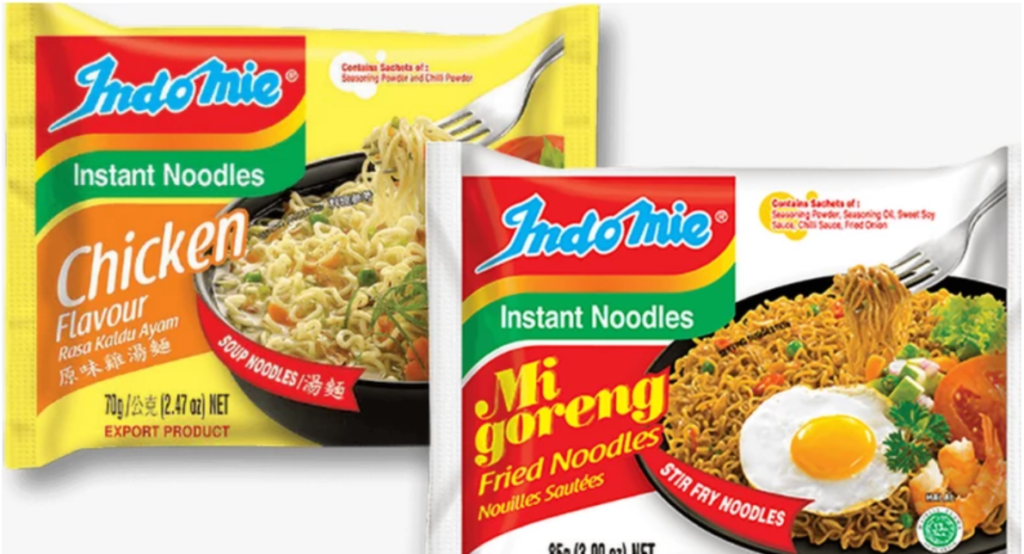If you love instant noodles, now might be a good time to pause and look at what you’re ingesting. The National Agency for Food and Drug Administration and Control (NAFDAC), on May 2, 2023, issued a press release concerning the recall of a flavour of the Nigerian staple, Indomie.
The Indomie “Special Chicken Flavour” is being recalled due to health concerns. Here’s the gist.
Why is NAFDAC issuing a recall of the “Special Chicken Flavour”?

[Banned Indomie / Premium Times]
In the statement signed by the director general of NAFDAC, Prof Mojisola Adeyeye, she said NAFDAC has begun sampling and analysing other Indomie noodles flavours. This also includes their seasonings, as they’re testing for the presence of ethylene oxide.
Why’s ethylene oxide bad? Ethylene oxide is a colourless and odourless gas. According to the National Cancer Institute, “In smaller amounts, ethylene oxide is used as a pesticide and a sterilising agent. The ability of ethylene oxide to damage DNA makes it an effective sterilising agent but also accounts for its cancer-causing activity.”
The statement from NAFDAC read, “The Management of the National Agency for Food and Drug Administration and Control, NAFDAC is aware of the recall of Indomie Instant Noodles ‘Special Chicken Flavour’ by the Ministries of Health in Malaysia and Taiwan on account of the alleged presence of ethylene oxide, a compound associated with an increased risk of cancer.
“NAFDAC, as a responsible and responsive regulator, is taking swift actions to carry out random sampling and analysis of Indomie noodles (including the seasoning) for the presence of ethylene oxide, as well as extending the investigation to other brands of instant noodles offered for sale to Nigerians.
“We use this medium to assure the public that a thorough investigation of the products will be conducted both at the factory and market levels, and our findings will be communicated.“
Adeyeye also noted via Twitter that noodles are on the import prohibition list. They’re not allowed to be imported into the country.
The ban only affects noodles imported into the country, not those produced in Nigeria.

What can I do?
You can help spread the word so people don’t consume harmful food. Also, look out for where the noodles are made. If it shows that it’s an exported product, there’s a good chance it’s illegal. Worse, it might be carcinogenic — which could spell double trouble.





